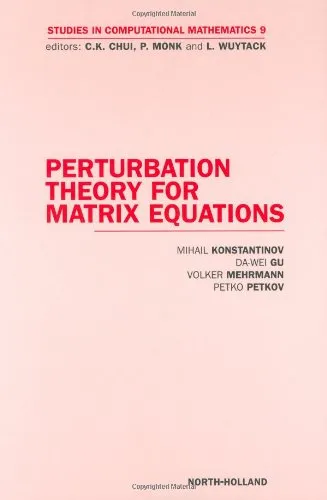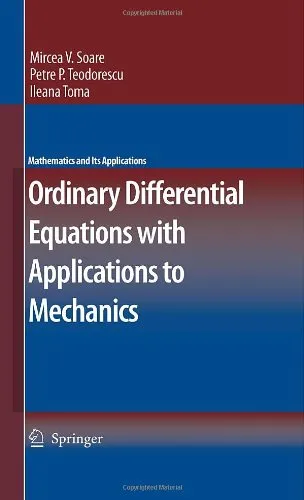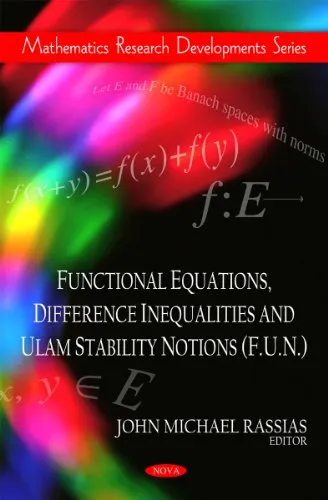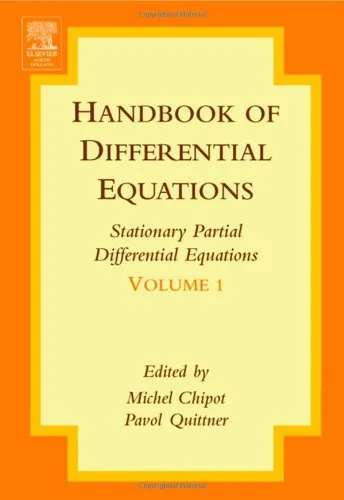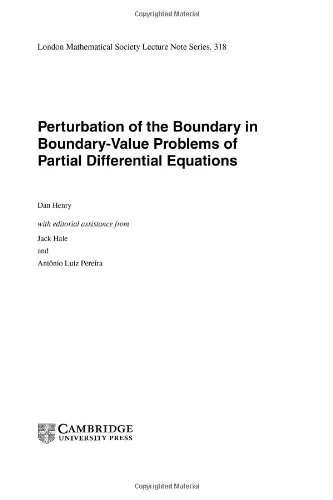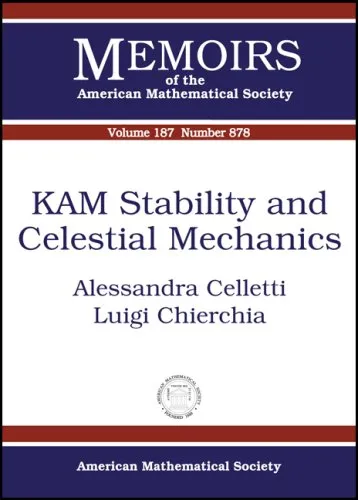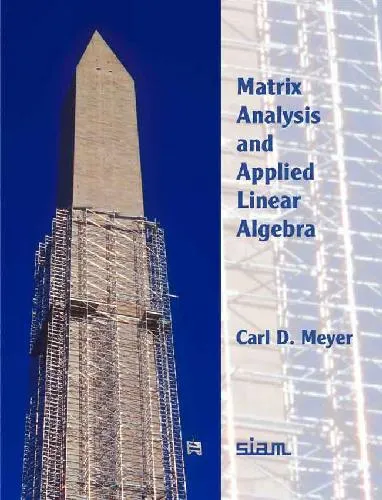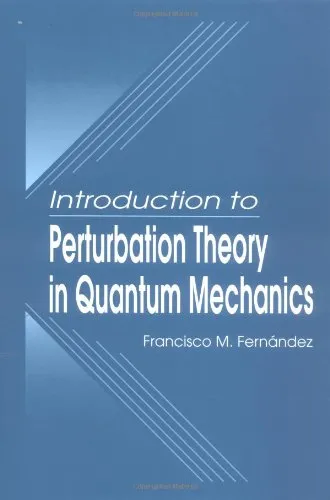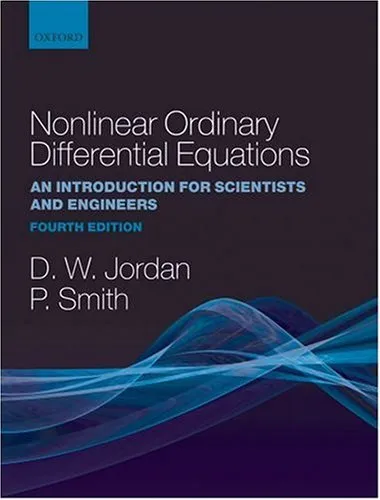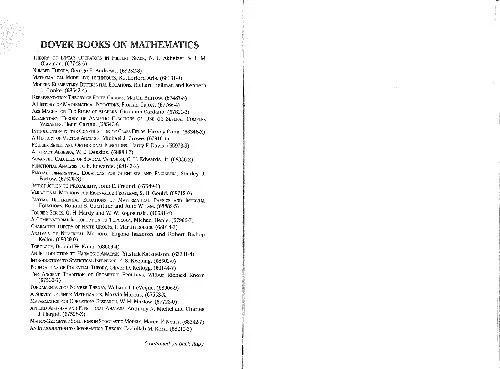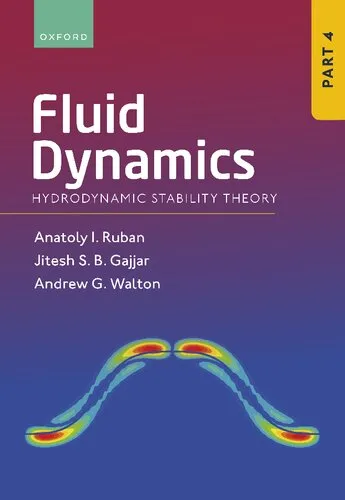Perturbation Theory for Matrix Equations
4.3
Reviews from our users

You Can Ask your questions from this book's AI after Login
Each download or ask from book AI costs 2 points. To earn more free points, please visit the Points Guide Page and complete some valuable actions.کتاب های مرتبط:
Introduction to Perturbation Theory for Matrix Equations
In the sphere of mathematical studies, one cannot overlook the substantial influence of perturbation theory, particularly as it pertains to matrix equations. This book, "Perturbation Theory for Matrix Equations," edited by C.K. Chui, P. Monkand, and L. Wuytack, stands as a cornerstone for understanding the intricate perturbations in matrix mathematics. This text is essential for mathematicians, engineers, and scientists who deal with large data matrices. It covers the nuances of how slight changes in a matrix affect solutions, stability, and computational complexity across various equations.
Summary of the Book
Engaging with the world of matrix equations, this book offers readers a thorough investigation into the perturbation theory associated with them. It encompasses a broad spectrum of topics, cleverly intertwining theoretical insights with practical implications. Various types of matrix equations, such as linear, Riccati, and other nonlinear equations, are discussed, examining how their solutions can be influenced by perturbations.
The book starts with foundational knowledge essential for anyone diving into this field, including basic matrix algebra, special types of matrices like Hermitian and positive definite matrices, and the importance of eigenvalues and eigenvectors in solutions. It progresses to more complex subjects, such as the perturbation bounds for matrix functions and the stability analysis of different matrix equations.
Ultimately, this book serves as both a theoretical and practical guide for the application of perturbation theory in real-world problems. It supplies mathematicians and applied scientists with a toolkit for predicting the behavior of numerical solutions when confronted with data inaccuracies, which are endemic in practical applications.
Key Takeaways
- Comprehensive Understanding: Develops a robust foundational understanding of how perturbations affect matrix equations.
- Application Focused: Provides applicable methods for analyzing and solving matrix equations in various fields, including engineering and physics.
- Theoretical and Practical Insights: Balances theoretical formulations with practical problem-solving techniques utilized in computational mathematics.
- Advanced Topics: Delves into intricate topics like eigenvalue perturbation and matrix stability, equipping readers with advanced knowledge required for high-level problem solving.
Famous Quotes from the Book
"Perturbation theory provides pivotal insights, where small changes in initial data lead to comprehensive understanding of complex systems."
"In the realm of matrices, perturbation is not just an analytic tool; it is a window into the stability and resilience of algorithms."
Why This Book Matters
This book's significance lies in its ability to bridge the gap between abstract mathematical theory and tangible applications. In fields where data uncertainty is inevitable, understanding how tiny perturbations can influence matrix equations is crucial. With technological advancements requiring the processing of vast amounts of data, this text offers invaluable knowledge, providing methods to ensure stability and accuracy in computational results.
The interdisciplinary approach, touching upon mathematics, engineering, and computer science, makes it a versatile tool for any scholar or professional wishing to maintain competitiveness in their respective fields. Whether it's in developing software for simulations, engineering models, or computational solutions to complex scientific problems, perturbation theory for matrix equations is indispensable.
This book not only enhances theoretical knowledge but also amplifies practical skills, giving its readers a clear advantage in tackling the challenges posed by modern computational needs.
Free Direct Download
You Can Download this book after Login
Accessing books through legal platforms and public libraries not only supports the rights of authors and publishers but also contributes to the sustainability of reading culture. Before downloading, please take a moment to consider these options.
Find this book on other platforms:
WorldCat helps you find books in libraries worldwide.
See ratings, reviews, and discussions on Goodreads.
Find and buy rare or used books on AbeBooks.
1329
بازدید4.3
امتیاز0
نظر98%
رضایتReviews:
4.3
Based on 0 users review
Questions & Answers
Ask questions about this book or help others by answering
No questions yet. Be the first to ask!
